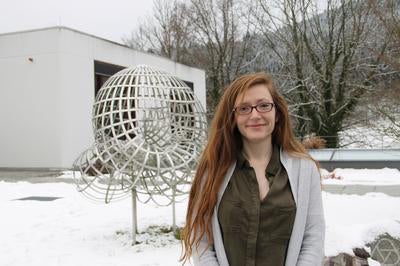“When I was a kid, I always begged my parents to buy me those little Mind Benders puzzles,” remembered Rose McCarty. “My favorite puzzles were the ones that were so difficult that I wasn’t sure whether or not I could actually solve them. At Waterloo Math, I’m the one coming up with different puzzles to solve. I have an opportunity to tackle big, imprecise, unwieldly problems that determine what my field will look like in 20 years.”
A native of Atlanta, Georgia, Rose enrolled in the Georgia Institute of Technology with plans to become an aerospace engineer. “I realized right away that I enjoyed the math aspect of engineering more than the hands-on work,” she said. She changed her major to discrete mathematics, finding her Combinatorics classes so intriguing that she searched for a doctoral program with a specialized focus on Combinatorics and Optimization (C&O).
The Faculty of Mathematics at Waterloo topped the short list of North American universities with a specialized department in her field of interest. Rose arrived to begin her doctorate in 2017 without having ever lived in Canada before. “Fortunately, the Faculty made it pretty easy to adjust,” she expressed. “It’s the kind of place where people keep their doors open.”

In the past three years, Rose has taken advantage of every opportunity she finds to conduct research across borders. So far, she has traveled to Poland, France, Germany, South Korea, and the Czech Republic to work with fellow researchers on problems in structural graph problems. “The most rewarding aspect of my PhD program has been to work on unsolved problems with some of the greatest minds in my field,” she affirmed.
As the COVID-19 pandemic prevents travel and in-person meetings, Rose misses the synergy of facing an empty white board with a group of collaborators. Even in a season of isolation, however, the joy of tackling puzzles in her field has not worn off. She is currently focusing on her thesis, which relates to structural graph theory for dense graphs with large, interconnected sets of vertices.
After defending her thesis in 2022, Rose plans to pursue a career as a professor in mathematics or computer science, continuing down the path of research and teaching she has already begun to forge at the Faculty of Mathematics. “Waterloo has given me a unique opportunity to really focus on my interests in collaboration with other like-minded researchers and learn how to pass that knowledge along as a teacher,” she concluded. “My experience has helped lay a foundation for success in so many ways.”